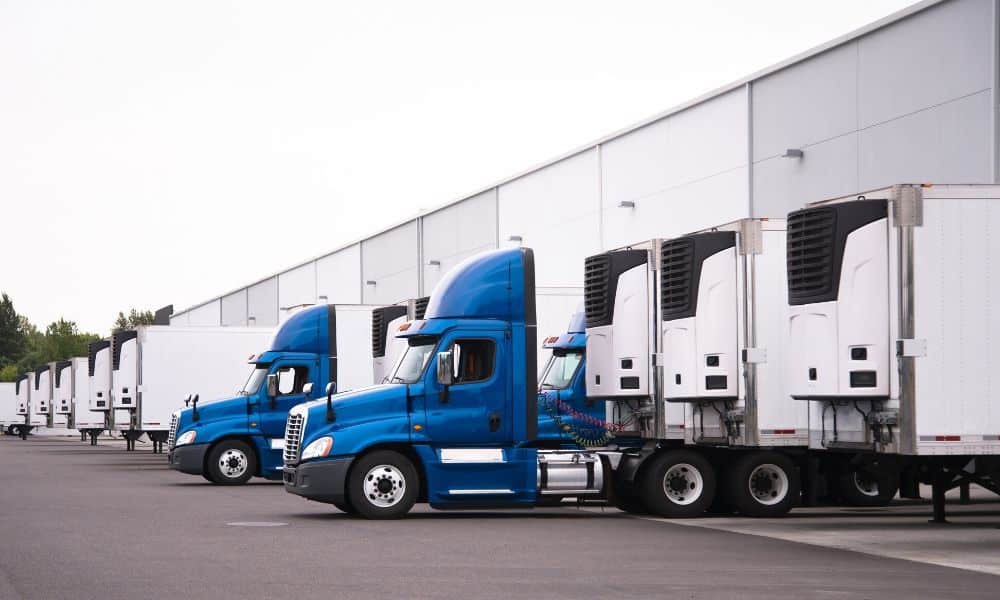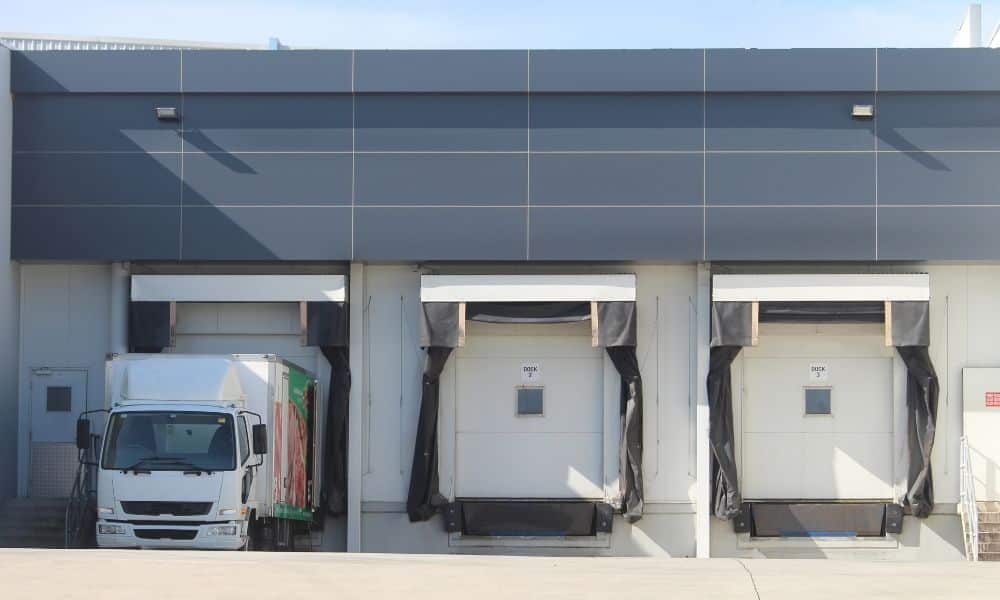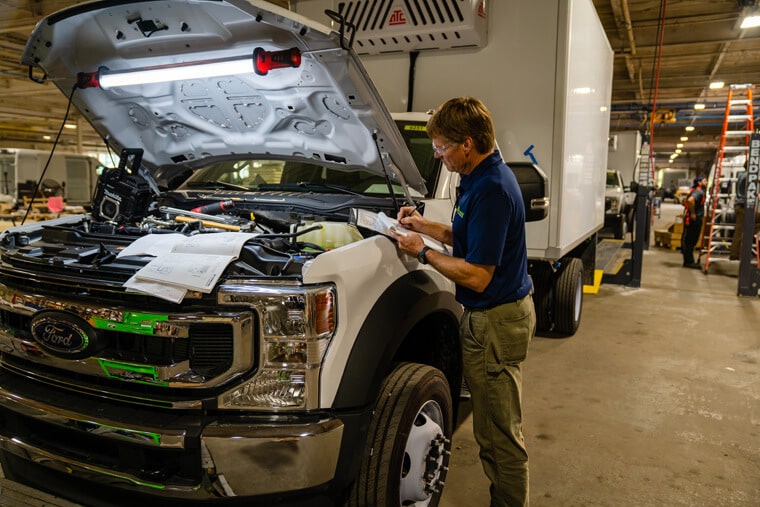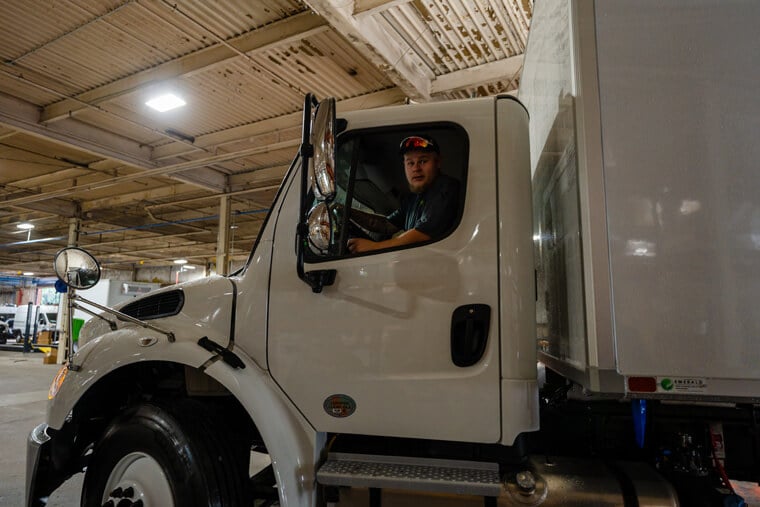
Common Issues With Refrigerated Trucks
Joe Dickman | January 15th, 2021
The path of a truck driver is not an easy one to walk (or drive). Between spending large portions of time in isolation on the road and being accountable for the delivery of products all across the country, it can be easy to forget about the other responsibilities of these warriors of the road.
These obligations are magnified when transporting perishable goods in a temperature-controlled vehicle. Drivers must be able to identify a slew of potential problems with their truck, any one of which can lead to spoiling of the goods being shipped. Here are just a few of the common issues with refrigerated trucks that drivers must pay attention to.
Leaks
Leaks in any situation are typically bad, but they can be especially dangerous when transporting materials that require a certain temperature safe zone. While leaks can come in many different forms, the two that drivers must look out for are fluid leaks and air leaks. If the reefer’s cooling unit isn’t working as it should, checking for leaks is the first step in solving the problem.
Fluid Leaks
Much like throughout the rest of the vehicle, a fluid leak is one of the quickest ways to cause a refrigerated truck to miss time on the road. Be sure to keep an eye on normal engine fluid levels like the oil, engine coolant, and transmission fluid. Though not directly related to the refrigeration unit, keeping the vehicle running is just as important as keeping the cooling unit in working order.
If the problem does stem from the cooling unit, the two most likely culprits are the equalizer tubes and the cooling hoses and belts. These two areas should be the first that you inspect if there is a noticeable swing in temperature in the back of the truck. The equalizer tubes are the components that control the flow of the cooling liquid into the evaporator. Leaks in this area are a cause for concern and should be addressed immediately.
The same is also true for any hoses or belts that are cracked, broken, or worn. There are many different belts and hoses that make up the system responsible for keeping the refrigerator running. A hole or crack in any of them can cause major issues with the cooling system and must be addressed as quickly as possible.
Air Leaks
Just as likely to cause problems as their liquid counterparts, air leaks can quickly cause the products to go bad if not properly addressed. The biggest area of concern when looking for air leaks is near the seals for the vehicle. If the truck isn’t airtight, cool air can escape and allow warm air to enter. One of the biggest ways to mitigate this threat is to perform preventative maintenance and regular audits on the reefers.
The most common location for air to escape is from a broken seal. While they are used in other places throughout the trailer, the doors are most frequently the location where seals are used. Another common way for air to escape is through rips and tears in the air chutes that run along the roof of the trailer. Finally, be aware of loose, damaged, or faulty hinges on the door that can compromise the integrity of the seal.
Bad Calibration
Calibration is important in refrigerated transportation because it ensures that the cooling unit is putting out the proper amount of air required to safely transport the load. If there are issues with your machine’s calibration, it can cause the system to improperly raise or lower the temperature, causing contamination concerns. This is an issue that can go undiagnosed for long periods of time because people usually assume that their tools are always correct. If you have checked all of the other likely culprits, consider getting your reefer recalibrated to see if this corrects the problem.
Faulty Sensors
The next of the common issues with refrigerated trucks that is somewhat tied to poor calibration is faulty sensors. The sensors are what lets the driver know when there are changes in temperature in the reefer. But if there are problems with these sensors, it can be hard to determine what the actual cause is aside from trial and error. You should have your sensors checked each time your vehicle is being serviced to ensure that they are properly reporting the temperatures in your reefer.
Condenser Problems
Condensers are a critical piece of reefer hardware that act as heat exchangers throughout the vehicle. They function in a refrigeration unit in much the same way that a radiator does in the truck’s engine to help maintain a stable temperature. If there are leaks or damage to any of the components within the condenser, it can put a huge strain on the rest of the cooling system that may not be able to be overcome. Common components to inspect in the condenser include the many coils, clamps, bolts, and tubes that make up the system.
Bulkhead Issues
Many refrigerated trucks come equipped with bulkheads for the purpose of transporting goods that have different temperature requirements. When these are working properly, they allow the inside of the truck to be divided into different temperature zones. But there are several issues that can arise, causing temperature control issues if there are problems with the bulkhead.
The first problem is a blockage of the bulkhead. These can cause temperatures to fluctuate around the truck, putting the product in jeopardy. Drivers must be sure that pathways through the truck are clear to prevent blockages that can interrupt airflow. And speaking of airflow, the other common problem with the bulkhead comes from damage to the seals or the bulkhead doors, allowing warm air into areas where it could cause problems with the product.
If it is time to purchase a new reefer unit, look no further than the climate-controlled transportation experts at Emerald Transportation Solutions. We have a wide variety of refrigerated vehicles for sale that are sure to meet all of your delivery needs.
Related Articles
Contact Us
Feel Free To Contact Us If You Have Any Questions
What does under DOT mean?
Questions regarding DOT requirements come up often. 10,000 lbs GVW (gross vehicle weight) and over are commercial vehicles that fall under the Department of Transportation regulatory requirements.
What is the difference between GVW and payload?
GVW or Gross Vehicle Weight is the entire weight of the vehicle including the payload. The payload weight represents the amount of cargo you are hauling.
What is a self-powered unit and a vehicle-powered unit?
A self-powered unit has its own fuel source and will run independent of the truck. This is the heaviest and most expensive option. While vehicle-powered units run off the engine via a compressor mounted on the engine. These are less expensive and lighter in weight but you must run the truck or plug the electric standby into shore power.
What does K-factor mean and why is that important?
K-factor is a term that stands for the overall insulating value of the container (truck body). Quite simply the lower the K-factor the better the truck body will be able to maintain a given temperature and require less energy to do so.
How much lighter is a Poly Van vs a US spec body?
Poly Van bodies are very light. On average we estimate we are 75-150 lbs per foot lighter than a traditional sheet and post foamed in place body. These weight savings translates to less fuel burn and less CO2 emissions, along with added payload, the most important benefit.







